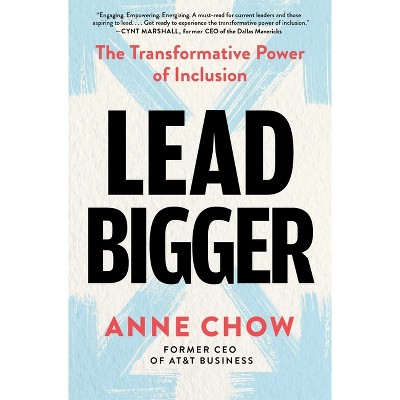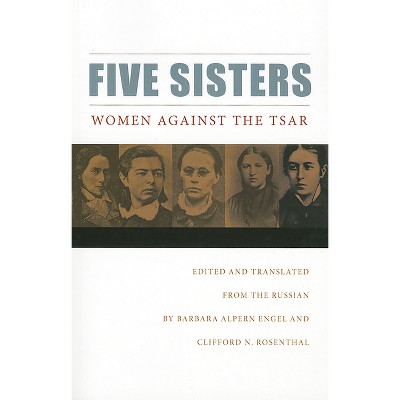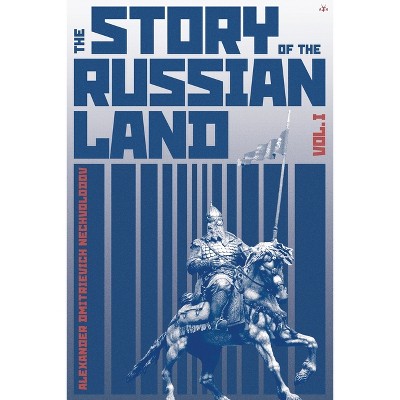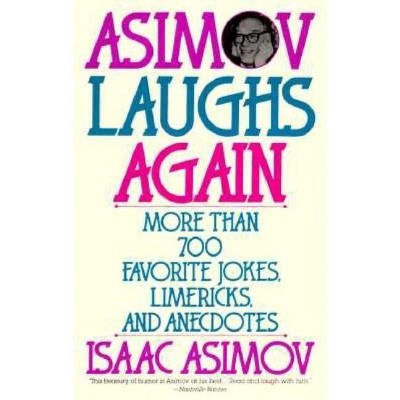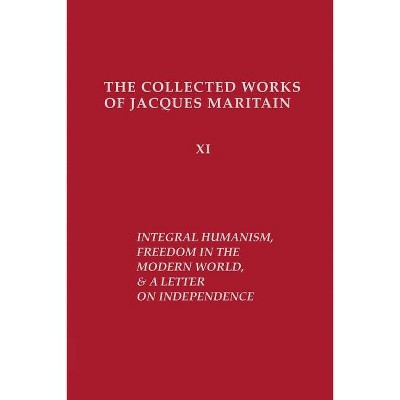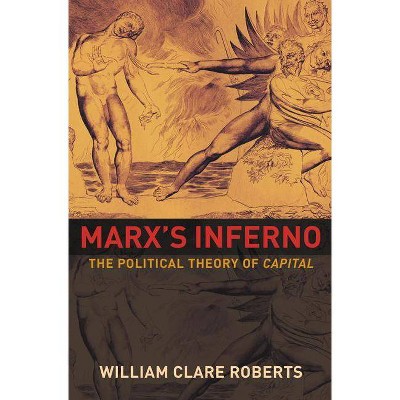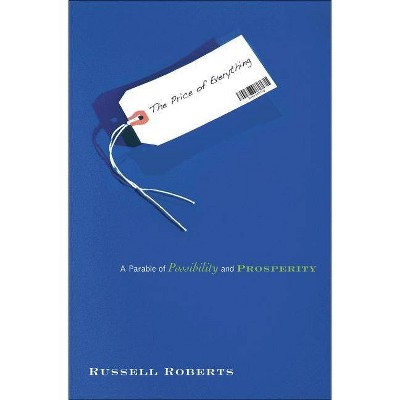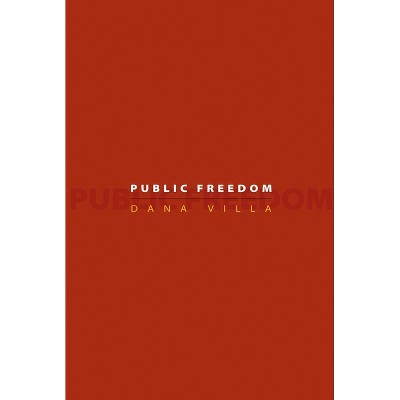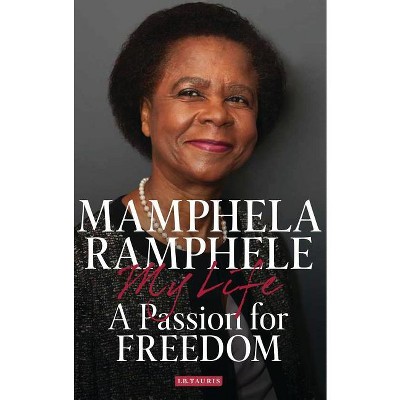Sponsored

Freedom as Marronage - by Neil Roberts (Paperback)
$31.00
In Stock
Eligible for registries and wish lists
Sponsored
About this item
Highlights
- What is the opposite of freedom?
- About the Author: Neil Roberts is associate professor of Africana studies and a faculty affiliate in political science at Williams College.
- 264 Pages
- Philosophy, Political
Description
About the Book
" Freedom as Marronage" deepens our understanding of political freedom not only by situating slavery as freedom s opposite condition, but also by investigating the experiential significance of the equally important liminal and transitional social space "between" slavery and freedom. Roberts examines a specific form of flight from slavery"marronage"that was fundamental to the experience of Haitian slavery, but is integral to understanding the Haitian Revolution and has widespread application to European, New World, and black Diasporic societies. He pays close attention to the experience of the process by which people emerge "from "slavery "to "freedom, contending that freedom as marronage presents a useful conceptual device for those interested in understanding both normative ideals of political freedom and the origin of those ideals.Roberts investigates the dual anti-colonial and anti-slavery Haitian Revolution (1791-1804) and especially the ideas of German-Jewish thinker Hannah Arendt, Irish political theorist Philip Pettit, American fugitive-turned ex-slave Frederick Douglass, and the Martinican philosopher Edouard Glissant in developing a theory of freedom that offers a compelling interpretive lens to understand the quandaries of slavery, freedom, and political language that still confront us today."
Book Synopsis
What is the opposite of freedom? In Freedom as Marronage, Neil Roberts answers this question with definitive force: slavery, and from there he unveils powerful new insights on the human condition as it has been understood between these poles. Crucial to his investigation is the concept of marronage--a form of slave escape that was an important aspect of Caribbean and Latin American slave systems. Examining this overlooked phenomenon--one of action from slavery and toward freedom--he deepens our understanding of freedom itself and the origin of our political ideals. Roberts examines the liminal and transitional space of slave escape in order to develop a theory of freedom as marronage, which contends that freedom is fundamentally located within this space--that it is a form of perpetual flight. He engages a stunning variety of writers, including Hannah Arendt, W. E. B. Du Bois, Angela Davis, Frederick Douglass, Samuel Taylor Coleridge, and the Rastafari, among others, to develop a compelling lens through which to interpret the quandaries of slavery, freedom, and politics that still confront us today. The result is a sophisticated, interdisciplinary work that unsettles the ways we think about freedom by always casting it in the light of its critical opposite.Review Quotes
"Freedom as Marronage holds up the incisive modes of critique of the Black Radical Tradition: works like Cedric Robinson's Black Marxism: The Making of the Black Radical Tradition or Walter Rodney's How Europe Underdeveloped Africa, while also appealing to, even destabilizing, the conventions of more traditional political science theory. Whether or not the rigid functionalist tenants of American political science are able to hear the radical theories of freedom raised by black maroon history remains uncertain, but to be sure the foundations of such a stogy pragmatist discourse will have been shaken by the publication of Freedom as Marronage."
-- "Black Critical and Cultural Theory"
"Freedom is a keyword in modern political thought and culture. Yet, as Roberts convincingly shows, modern political thinkers tend to analyze the concept using the freedoms of the powerful and the privileged to inform their conceptual frames. His wager, which pays off spectacularly, is that readers can gain fresh insights by starting with the history of resistance to slavery. He calls this new conception of freedom 'freedom as marronage.' Roberts's book is not merely an ideology critique that shows how dominant conceptions of freedom exclude the experiences of subordinate others. Rather, it is a detailed and nuanced exploration of the kinds of flight from slavery, their nature, and their limits. The result is a unique contribution to contemporary political thought: the idea of freedom as an ever-shifting process occurring in the liminal space of the slave escape. . . . Freedom as Marronage is clearly written and expertly researched. It is essential reading for those interested in the history of slavery, the concept of freedom, and critical theory. . . . Essential."-- "Choice"
"Freedom as Marronage is a welcome addition to a growing body of work that is challenging Western political theory and Western political philosophy from the perspective of a decolonial agenda. . . . One of the most valuable features of this book is its self-conscious and explicit drawing on the black slave and post-slave experience--New World African enslavement, marronage of different varieties, the Haitian slave revolution, post-emancipation racial oppression in conditions of nominal freedom--as a resource for political theory. By taking this subaltern history as his archive--'dread history' in the coinage of the Jamaican Rastafari--Roberts demonstrates what rich political raw materials lie waiting for the theorist with the courage to stray beyond the bounds of the Western estate."
-- "Journal of French and Francophone Philosophy"
"Blazing a path through critical discussions of republican theory, the writings of Frederick Douglass and Edouard Glissant, the Haitian Revolution, and Rastafari, Freedom as Marronage confronts readers with a deceivingly simple question: how does a person become 'free'? Freedom, Neil Roberts answers, cannot be understood without considering the dominant term that opposes freedom in political modernity: slavery. However, instead of treating these as opposite conditions and states of being--or rather, more strictly speaking, as Roberts posits following Frantz Fanon, as a state of being opposed to a zone of nonbeing--Freedom as Marronage shows that freedom emerges in enslaved persons' escape from and active negation of slavery. . . . Consequently, despite the infamous and widely cited consignment of slaves to what Orlando Patterson called a condition of 'social death, ' Roberts insists that enslaved persons do not in fact lack agency. In and by marronage, a formerly enslaved person, whether alone or together with others, asserts herself as an agent capable of altering the circumstances and political relations that condition her being. The emphasis on slave agency constitutes an important intervention in political theory at this moment, just after the sesquicentennial of the Emancipation Proclamation, which is still widely understood as having 'freed'--juridically, from above--many (but not all) slaves in the United States. . . . Certainly, Freedom as Marronage proves that Roberts does not write in a tentative voice but always takes his stances boldly."
-- "Perspectives on Politics"
"Neil Roberts's ambitious and timely intervention argues that political freedom must be thought in relation to the existence and experience of slavery. His bold call to understand "freedom as marronage" is also motivated by the important project of "creolizing political theory" by grounding it in black historical experience and paying close attention to how black thinkers have reflected on that experience."-- "SX Salon"
"Roberts offers a new and exciting analysis of the relationship of slavery to freedom. He reviews the extant literature to reject the idea that slavery and freedom are inherently inert conditions enjoyed separate and apart from the other. Roberts finds that the well renowned historian John Hope Franklin, as well as the respected fathers of modern philosophy such as Hobbs, Berlin and Kant, all viewed slavery and freedom as inertia since they ignore flight in their theories on slavery and slave agency. . . . Roberts' ideas on how the lived experience of marronage achieved political freedom are both new and refreshing. He does a superb job discussing how it was a non-sovereign imaginary of freedom that moved more than a half million African slaves to take flight from slavery and begin the business of building a new polity known as the nation of Haiti. In the words of Neil Roberts, the masses of Haiti dared to be free by themselves and for themselves."-- "National Political Science Review"
About the Author
Neil Roberts is associate professor of Africana studies and a faculty affiliate in political science at Williams College.Dimensions (Overall): 8.9 Inches (H) x 6.0 Inches (W) x .8 Inches (D)
Weight: .83 Pounds
Suggested Age: 22 Years and Up
Number of Pages: 264
Genre: Philosophy
Sub-Genre: Political
Publisher: University of Chicago Press
Format: Paperback
Author: Neil Roberts
Language: English
Street Date: February 11, 2015
TCIN: 1006093148
UPC: 9780226201047
Item Number (DPCI): 247-32-7381
Origin: Made in the USA or Imported
If the item details aren’t accurate or complete, we want to know about it.
Shipping details
Estimated ship dimensions: 0.8 inches length x 6 inches width x 8.9 inches height
Estimated ship weight: 0.83 pounds
We regret that this item cannot be shipped to PO Boxes.
This item cannot be shipped to the following locations: American Samoa (see also separate entry under AS), Guam (see also separate entry under GU), Northern Mariana Islands, Puerto Rico (see also separate entry under PR), United States Minor Outlying Islands, Virgin Islands, U.S., APO/FPO
Return details
This item can be returned to any Target store or Target.com.
This item must be returned within 90 days of the date it was purchased in store, shipped, delivered by a Shipt shopper, or made ready for pickup.
See the return policy for complete information.
Frequently bought together

$11.37 - $16.50
MSRP $18.99 - $30.00
Buy 2, get 1 free select books, music & movies
4.4 out of 5 stars with 23 ratings
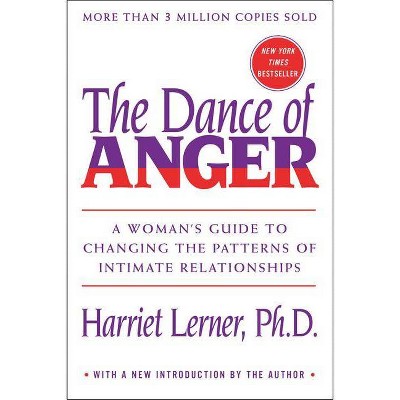
$11.00
MSRP $18.99
Buy 2, get 1 free select books, music & movies
5 out of 5 stars with 1 ratings
Trending Philosophy

$13.99 - $23.05
MSRP $25.00 - $40.00
Buy 2, get 1 free select books, music & movies
4.4 out of 5 stars with 197 ratings

$15.00
MSRP $25.00
Buy 2, get 1 free select books, music & movies
4.5 out of 5 stars with 4 ratings

$10.23
was $10.78 New lower price
Buy 2, get 1 free select books, music & movies
4.6 out of 5 stars with 22 ratings

$8.18
MSRP $11.00
Buy 2, get 1 free select books, music & movies
4.8 out of 5 stars with 5 ratings

$12.69
MSRP $22.99
Buy 2, get 1 free select books, music & movies
5 out of 5 stars with 1 ratings

$7.26
MSRP $12.00
Buy 2, get 1 free select books, music & movies
4 out of 5 stars with 2 ratings
Discover more options
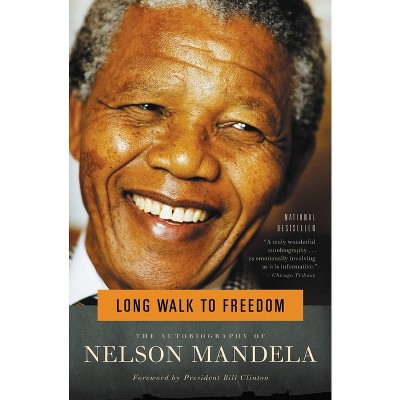
$12.99
MSRP $24.99
Buy 2, get 1 free select books, music & movies
5 out of 5 stars with 1 ratings
